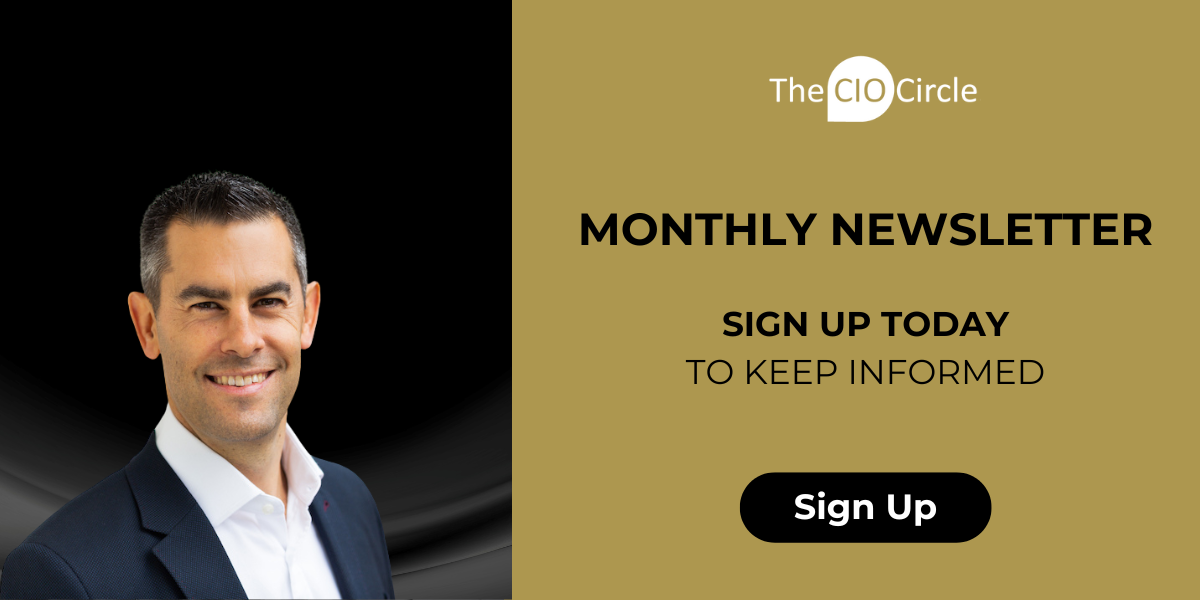CIO, CTO, Interim Tech Executive
Can you please provide a little introduction about yourself
I'm Scott McGillivray. I have almost 30 years of professional IT experience, working from the trenches in field support up to the C Suite. I'm based in the Portland, Oregon area, and while I'm seeking a new permanent role I'm currently doing freelance interim tech leadership work.
What has your journey to your position been like? What path have you taken?
I like to say that my IT career started when I was 12 years old, when I was introduced to the Commodore PET computer and feel deeply in love. That was 1980, and I never stopped working with computers. Still, when I graduated from high school, none of the adults around me saw a career path for the nerdy kid who "knows computers." A few told me I might one day work for IBM...a few kids I knew had parents with IBM, and it was common knowledge that was an acronym for "I've Been Moved."
So I pursued my other love: I studied music. It turns out that I have two big talents: music and technology. Only one of them pays the bills, so I'm fortunate to have been able to figure that out.
Still, I had one big break. In the 90's, I was managing shipping and receiving for an industrial gas plant - really scary stuff used to make semiconductors. My company had started on a big initiative to put barcodes on all of our gas cylinders so we could track them and manage the fleet. My boss at that time volunteered me to be the operations person on that project. We built and rolled out the solution to plants all over North America, and it was a pretty successful project.
When the project finished, I was asked by the company's IT leadership to join their team. I started doing traveling field support and training, and that gave me a fantastic set of experience and skills to build on. Since then, I never even considered working in something other than tech.
The rest of my career was an inexorable journey into IT leadership. I did systems administration, network engineering, systems engineering, and a very small amount of development, and a very common thing I heard from my supervisors was, "I'd like you to take charge of this project/team/system/etc." No matter what I was doing or where, I usually ended up being a leader.
Honestly, I'm full of war stories and I won't inflict them all on you. I will say that I had a great sales pitch when I interviewed for my first CIO position: when I was asked why I wanted to be a CIO, I said, "For my entire career, the biggest challenge for me has been to take somebody else's bad ideas and turn them into a successful reality. I think it's my turn to have some bad ideas." That worked, and I'm proud and happy with my career path.
Has it always been your vision to reach the position you’re at? Was your current role part of your vision to become a tech leader?
I truly enjoy technology and leading people. My initial plan was to have a job where I could work indoors with air conditioning and maybe make more money, but I found my groove though my career progression. Once I understood the need for a balance of technical know-how and people skills, I saw an appealing opportunity. I had worked with people who were very technically gifted, but also very difficult to engage with on a personal level. Similarly, I had encountered plenty of people in management who were engaging and rewarding to talk with, but had absolutely no idea how to use technology for their business.
I wanted to walk both paths. I found that balance at the beginning of my IT career, explaining barcode readers and their use to truck drivers who wanted nothing to do with them. Once I found my talent for personal engagement went along with my talent for making technology work, I just wanted to grow.
Have you had a role model or mentor that has helped you on your journey?
I'll name them both, since I owe them most of my career:
1. Bill Heintz. He was the plant manager at BOC Gases who assigned me to the barcode tracking project that started me down this path. I was kind of adequate at my job then, but he saw I had potential. I haven't seen the guy in about 30 years, and I still thank him now and then.
2. Alex Lubarov. Back in 2000-2003, I worked at a dot-com startup called PlaceWare. He was the Director of IT, my boss. He led a very talented team of people, and I was lucky to have been hired by him. He was based at the company's HQ in Mountain View CA, and I had to run IT for our office in Portland OR. Alex was amazing at building a loyal and happy team, and was fantastic at giving me the guidance I needed to succeed. Honestly, he has been my biggest role model as I grew in responsibility and scope. If I end up being like Alex, I've done well.
How do you see the role of the technology leader evolving over the next 5 years?
There's a very steady pace of "blending" of tech and business, and it's accelerating. In the "good old days," the IT team would be mostly isolated and given their own paths to follow. Over the past ten years, there's been a much greater emphasis on digital transformation and aligning technology with business strategy.
Since it's no longer sufficient for an IT leader to keep the lights on, it's imperative to grab a seat at the executive table and participate in business strategy. The most valuable thing I can do for a company right now is to find ways to help them achieve the best results they can, and to build capability for growth and pivoting with changing demands. It's not acceptable to be a reactive order-taker. Instead, a tech leader should be actively finding better ways to help a company succeed.
What skills do you think leaders of the future will need in order to thrive?
Adaptability is first and foremost. The world is changing around us at a rapid pace, and it's never OK to resist it. We see daily examples of people fighting change with all their might, and human history is filled with stories of people failing at that task. So if something groundbreaking like generative AI appears one day, the only reasonable response is to figure out how to leverage it well.
How do you keep current with new skills, technologies and personal development?
I'm an avid experimenter. When I see a tool or product that is interesting, I want to know how it works. Like when I was 12 years old, I sit down and figure it out. Aside from playing with shiny new toys, I read and absorb as much knowledge I can. There are always better ways to do things, and I'm always interested in them. I also love meeting with my peers and discussing our successes and failures. I never feel like that's wasted time, and am better for it.
What do you see as the next leap in technology that will impact your business or industry in particular?
Generative AI is big right now, but it's not the next leap anymore. I think more generalized quantum computing will be a significant game-changer, much like moving from vacuum tubes to transistors. We'll have orders of magnitude more capacity available to us, and it should change everything. More pervasive quantum computing will likely enable Artificial General Intelligence (AGI), which will bring unknowable results.
"First, start with people. Successful leadership is not being a genius or rich, it requires the ability to connect with fellow humans."
If you were mentoring a leader of the future, what advice or guidance would you give to help them on their way?
First, start with people. Successful leadership is not being a genius or rich, it requires the ability to connect with fellow humans. I've met plenty of incredibly talented people, and I'd never trust them to plan a group gathering. For many people, developing leadership skills is incredibly challenging. Since this is fundamental to success, it's step one.
Is there anything in particular that you would still like to achieve in your career or what is the next step on your journey?
I wouldn't say no to a billion-dollar exit in a few years, but there are more tangible things. The things I'm most proud of in my career are the people who I helped. I'd like to do more to help people achieve their capabilities, and if I can find myself a more permanent place to work, I'd like to build that approach into the entire company.
If you could change one thing in the world, what would it be?
Gravity. I've had some bad luck with it, and wouldn't mind repealing the law of gravity. ;-)
A serious thing is to standardize some perspective. We're all humans, and we ought to look out for each other. My life has not been a zero-sum effort, and I'm happy with that. As a species, we should more fully embrace the changes we see every day, since they're happening whether we want them or not. Let's do that together.
A big thank you to Scott McGillivray for sharing his journey to date.
If you would like to gain more perspective from Tech Leaders and CIOs you can read some of our other interviews here.
November 29, 2023


